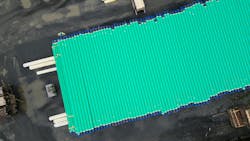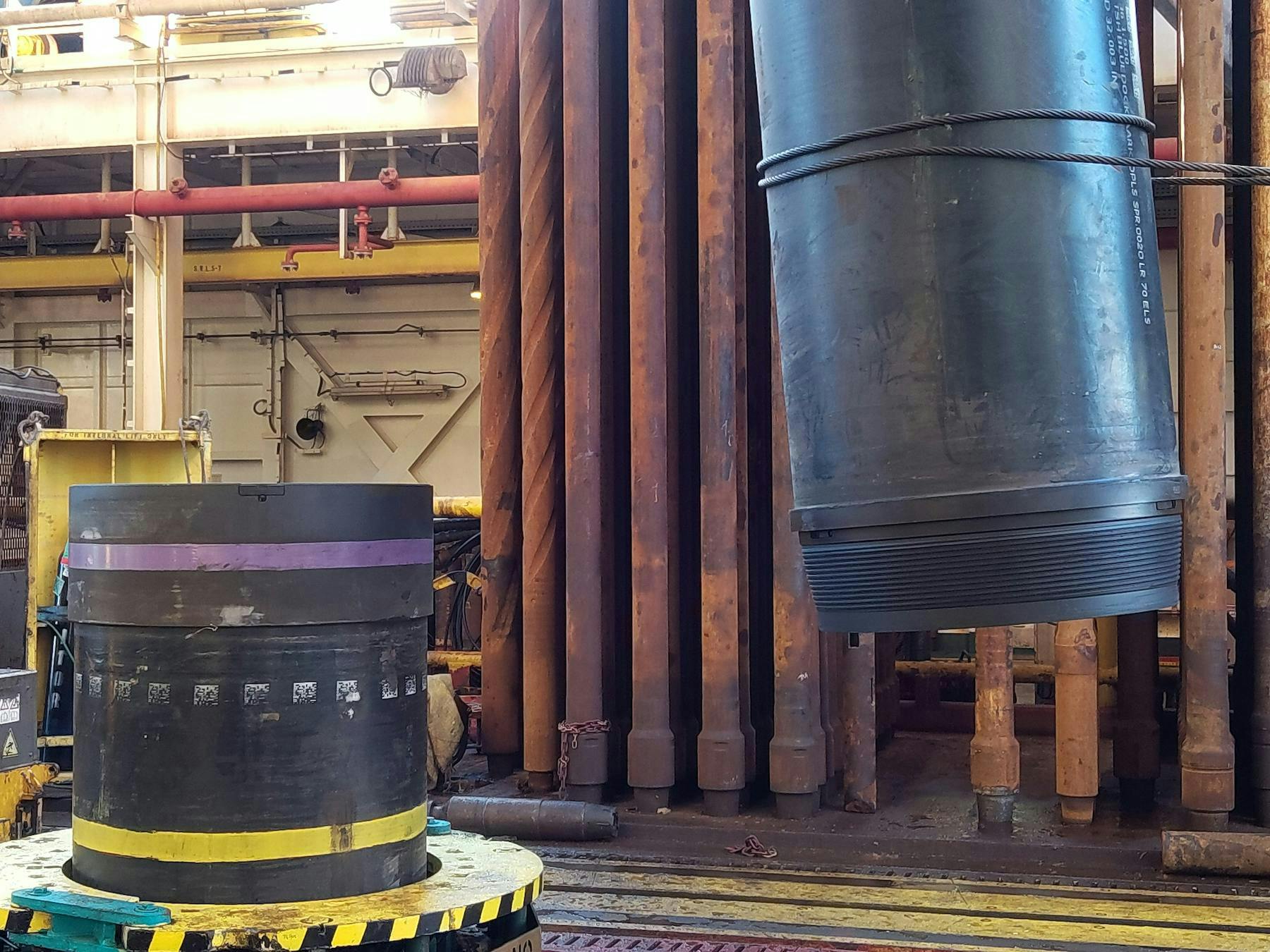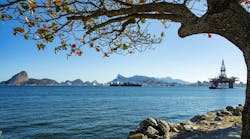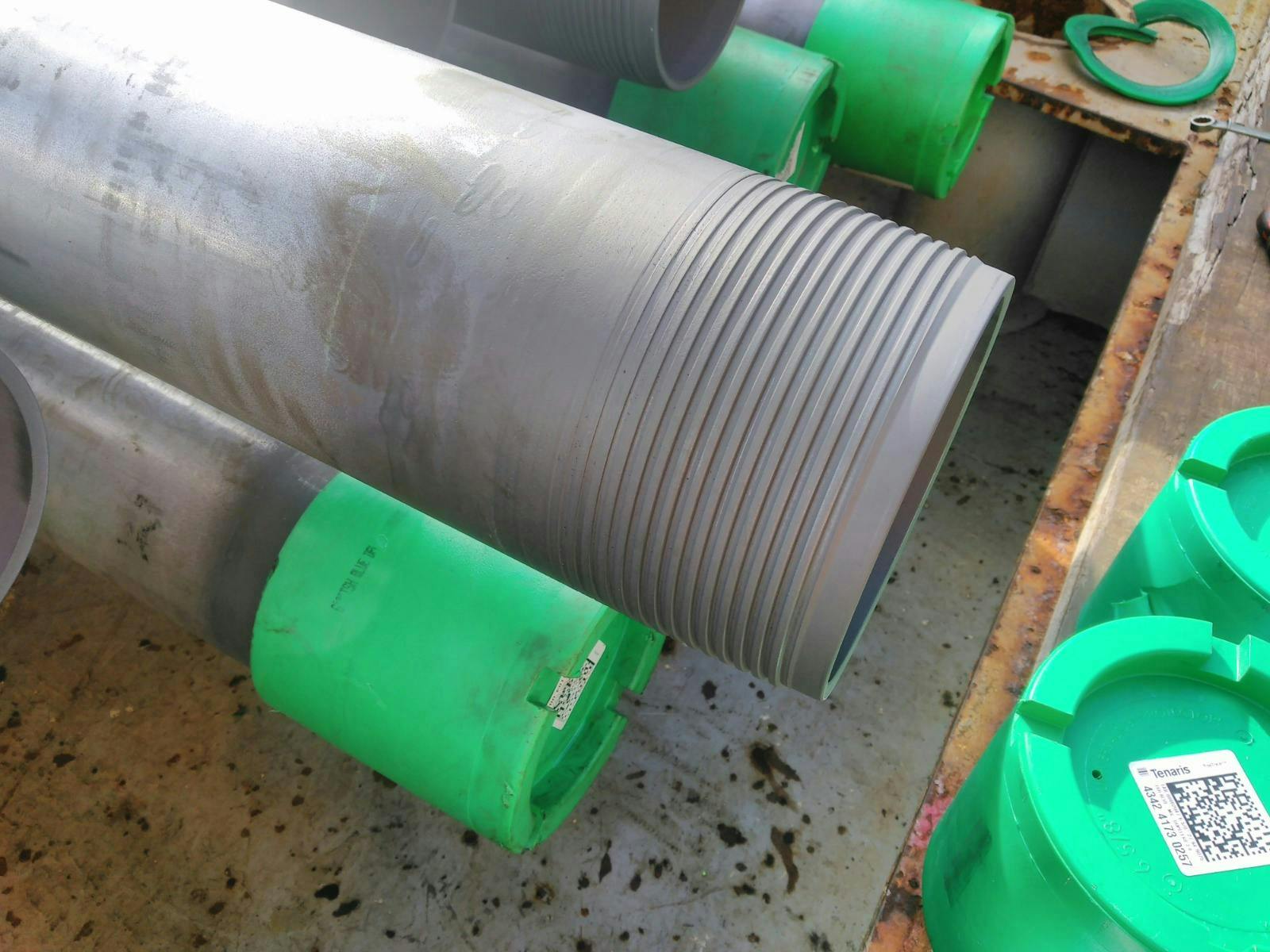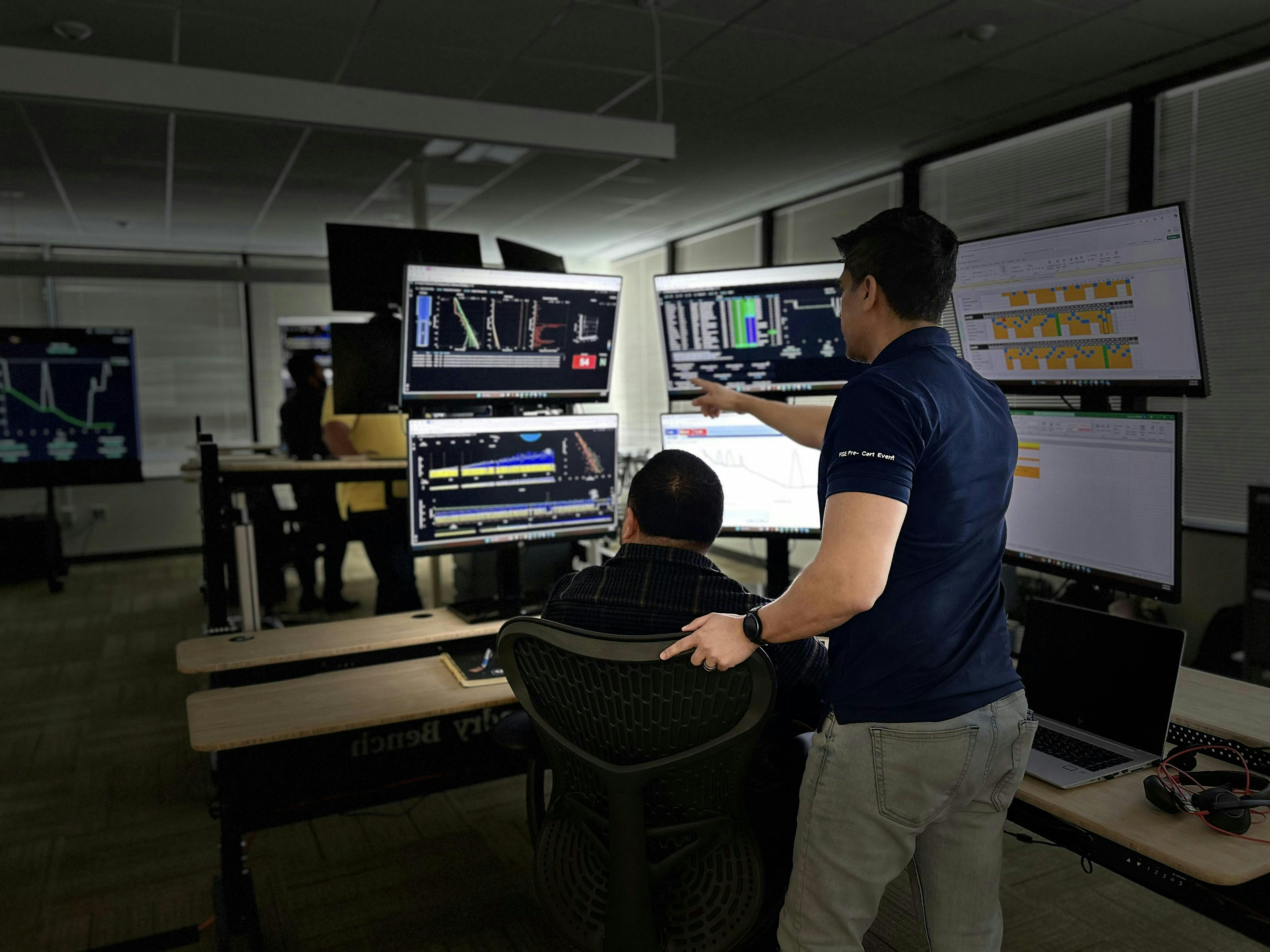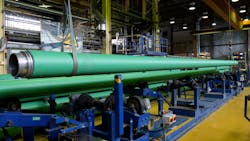ADIPEC 2025: Tenaris COO talks offshore pipeline performance and deepwater demands
Key Highlights
- Technologies and CRA materials are designed to enhance offshore safety, efficiency and ESG performance by reducing handling risks and installation times.
- Tenaris' Rig Direct model aims to streamline offshore project execution by delivering ready-to-run pipes, reducing manual handling and enabling real-time data monitoring.
- Pipe coating and thermal insulation technologies ensure long-term pipeline integrity in ultradeepwater environments.
By Ariana Hurtado, Editor-in-Chief
As offshore oil and gas continues to play a critical role in meeting global energy demand, industry leaders are navigating a landscape shaped by market volatility, technological advancement and shifting energy policies.
In this exclusive Q&A, Offshore speaks with Tenaris COO Gabriel Podskubka about the manufacturer's approach to supporting offshore operators through integrated pipeline services, corrosion-resistant alloy (CRA) materials and digital innovation. With the company's longtime experience in deepwater and frontier developments, from the Guyana-Suriname basin to Brazil’s presalt fields, Podskubka explains how Tenaris technologies and services are evolving to meet the demands of increasingly complex offshore projects.
Argentine citizen Podskubka first joined Siderca, Tenaris’ facility in the country, in 1995. In his 30-plus years with company, he has held various positions in the marketing, commercial and industrial areas. He was appointed head of Tenaris Eastern European operations in 2009 and then president of Eastern Hemisphere operations in 2013. Then he was named COO in April 2023.
Offshore: How is Tenaris positioning itself to support offshore operators amid global market volatility and shifting energy policies?
Podskubka: We see strong growth potential in offshore, particularly in the deepwater segment. Over the past 15 years, most of the additional oil supply has come from shale production, but as output from onshore US fields begins to decline, new sources will be needed to meet growing global demand. Offshore developments, especially in deep water, will play a central role in this next phase, as they have become highly competitive in terms of cost and project efficiency.
We are looking to support our customers by developing integrated services and new technologies for frontier operations like those in Suriname and 20K projects offshore the US.
Offshore: What role does offshore oil and gas play in Tenaris’ long-term growth strategy, especially in light of emerging energy transition pressures?
Podskubka: We see a very positive future of offshore oil and gas meeting global energy demand, even as the energy transition continues to advance.
Tenaris is highly focused on supporting frontier developments in the offshore market through the expansion of new technologies and integrated services. We have been working alongside leading operators in the offshore market for more than two decades, collaborating on some of the most complex developments in the Guyana-Suriname Basin, the Mediterranean and Black Sea, Asia-Pacific, the North Sea, Brazil’s presalt, offshore the US and West Africa.
Today, we are contributing to 20K deepwater projects with new TenarisHydril connections, ultrahigh strength proprietary steel grades and 3D mapping for collapse and burst estimations, strengthening our position offshore the US.
Dopeless technology, widely adopted in offshore operations for its efficiency and safety benefits, has now been extended to large-diameter connectors. Following its deployment in Brazil’s presalt fields, Tenaris has strengthened its position as the only OCTG [oil country tubular goods] manufacturer capable of offering a dope-free solution for the entire string, reinforcing our value proposition by enhancing safety in the rig’s red zone, one of the industry’s highest-risk areas.
We have also consolidated our position in the Guyana-Suriname Basin through the supply of tubulars, including Dopeless technology and weld-on connectors under our Rig Direct service model, to ensure the safe delivery to keep rigs supplied under an ambitious drilling schedule in Guyana. In Suriname, we have developed a local supply base for the GranMorgu project, fostering local value creation and supporting the country’s first offshore development.
For offshore pipelines, we have strengthened our One Line project solutions through the integration of the TenarisShawcor coating portfolio that includes a range of flow assurance, anti-corrosion, concrete weight coating and flow efficiency solutions.
Offshore: How does the Dopeless technology and corrosion-resistant alloy (CRA) tubulars in Brazil’s presalt fields improve offshore safety, efficiency and/or ESG performance?
Podskubka: Tenaris has pioneered the use of CRA materials in combination with its Dopeless technology—a multifunctional coating applied at the mill that reduces handling and preparation during storage and running—in some of the most complex offshore operations worldwide. Since its introduction in the Barents Sea in 2005, this combination has proven to deliver safer, faster and more reliable performance.
CRA materials mitigate corrosion risks; however, running CRA pipe typically presents a high risk of galling during make-up, which can result in slower running speeds and higher rejection rates. Applied automatically at our mills, Dopeless technology provides a consistent, high-performance lubrication that significantly reduces galling occurrence while enhancing operational reliability.
For example, during the recent deployments in the Búzios and Jubarte fields offshore Brazil, the use of Dopeless technology enabled running in stands of three, contributing to installation time reductions of up to 50%.
With Dopeless technology, connections are supplied ready to run. Since there is no need to enter the red zone of the rig floor to apply running compound, Dopeless technology enhances safety and efficiency in offshore environments while minimizing the environmental impact of operations by reducing onboard waste disposal and water use for cleaning.
Offshore: With increasing digitalization and automation, how is the company preparing its workforce, especially offshore field professionals, for the future of energy operations?
Podskubka: As the potential applications of new technologies in our industry continue to grow, we are constantly testing innovative solutions that leverage automation, machine learning and generative AI across our processes to improve industrial performance and enhance product quality.
We are also working closely with our customers to identify opportunities to optimize processes and enhance the efficiency and safety of energy operations. For example, we are expanding our capabilities for remotely monitoring offshore drilling activities, an approach already applied to onshore wells through our Remote Monitoring Center in Houston, Texas.
The integration of digital tools such as PipeTracer, Tenaris’s unique identification system, ensures full traceability of each pipe from the mill to the well, enabling the creation of digital tallies, enhancing accuracy and streamlining operations. And WISer, the latest concept within our Rig Direct service model, provides technical and digital solutions that support well integrity by capturing and processing real-time data at the rig.
Offshore: What advancements in pipe coating and thermal insulation technologies are helping Tenaris meet the demands of ultradeepwater projects?
Podskubka: Tenaris has consolidated a portfolio of coating solutions to better support its line pipe customers for both offshore and onshore projects, following the integration of the Shawcor pipe coating business in December 2023. With solutions in concrete weight coating, anti-corrosion systems and flow assurance, Tenaris provides a comprehensive suite of products and services that safeguard pipeline performance, extend asset life and ensure long-term operational reliability even in the most challenging environments.
Our One Line pipeline solutions integrate the supply of line pipe, TenarisShawcor coatings, bends and accessories, along with related services, supporting every step of the most complex projects from design to execution, while lowering the total cost of operations, improving lead times and ensuring supply security.
Offshore: Tenaris recently secured contracts for Suriname’s first offshore development and Brazil’s Búzios 11 project. What lessons from these projects are shaping future offshore engagements?
Podskubka: We are supporting Suriname’s first offshore development through the supply of OCTG, line pipe, TenarisShawcor coating solutions and related services, ensuring security of supply in a pristine environment and fostering local value creation.
The Búzios 11 project reinforces Tenaris’ role as a key supplier to Brazil’s presalt developments. Building on the positive experience of earlier phases, this project demonstrates the value we deliver by integrating the supply of line pipe with advanced coating solutions and related services.
Our integrated service approach enhances safety, reduces pipehandling and shortens project timelines for both projects. It also provides our customers with a single, accountable partner across multiple scopes of work. In both cases, these projects also highlight the value of leveraging Tenaris’ global manufacturing system and complementing it with our local footprint.
Tenaris is exhibiting at booth 7130 in Hall 7 at this week's ADIPEC Exhibition and Conference in Abu Dhabi, UAE.
*Offshore is a media partner of ADIPEC 2025.
About the Author
Ariana Hurtado
Editor-in-Chief
With more than a decade of copy editing, project management and journalism experience, Ariana Hurtado is a seasoned managing editor born and raised in the energy capital of the world—Houston, Texas. She currently serves as editor-in-chief of Offshore, overseeing the editorial team, its content and the brand's growth from a digital perspective.
Utilizing her editorial expertise, she manages digital media for the Offshore team. She also helps create and oversee new special industry reports and revolutionizes existing supplements, while also contributing content to Offshore's magazine, newsletters and website as a copy editor and writer.
Prior to her current role, she served as Offshore's editor and director of special reports from April 2022 to December 2024. Before joining Offshore, she served as senior managing editor of publications with Hart Energy. Prior to her nearly nine years with Hart, she worked on the copy desk as a news editor at the Houston Chronicle.
She graduated magna cum laude with a bachelor's degree in journalism from the University of Houston.
